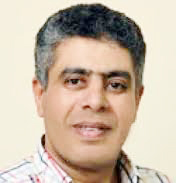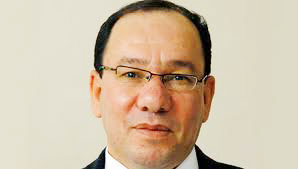After announcing the timing of the parliamentary elections on April 27, Egyptian columnists debate the upcoming political marathon and condemn both the authority and the opposition in dealing with the crisis.
Farewell to a hopeful consensus
Emad Al-Din Hussein
Al-Shorouk newspaper
As President Mohamed Morsi issued his decree to hold parliamentary elections on April 27, Hussein argues that the Muslim Brotherhood has indirectly won over the opposition. A meeting, which was held a week ago between head of the Freedom and Justice Party Saad Al-Katatni, head of the Al-Dostour Party Mohamed ElBaradie and head of the Al-Wafd Party Sayed El-Badawy did not achieve any fruitful outcomes to the political crisis.
Although the opposition has always been optimistic that the presidency will manage to pull all parties out of the plight by delaying the parliamentary elections until consensus is achieved and through forming a new government, hopes of the National Salvation Front (NSF) was brought down.
When the Supreme Constitutional Court (SCC) came up with five remarks on the elections law, Hussein chides the Shura Council which rushed to finalise the court’s observations as quickly as possible before referring the draft law to Morsi.
Some have argued that the Muslim Brotherhood insisted to carry on with the elections in April to prove that it has not accepted the rules of the game set by the NSF. One of the objectives of holding the elections in two months, according to Hussein, is to highlight the weakness of the opposition in Egypt and confirm that there are many political groups who are willing to enter the political race.
The misery of authority and opposition
Wael Qandil
Al-Shorouk newspaper
Qandil believes that Egypt is witnessing a stage where all parties are trying to escape from genuine political participation. Although the timing of the parliamentary elections was announced, one could see the authority leaving an open door for dialogue with conflicting parties, where as the opposition is escalating their demands to participate in the race.
Clarity is missing, says Qandil. He chides the opposition forces, manifested in NSF, for being hesitant on whether or not its parties will participate in elections. Both the opposition and the ruling authority claim they are the best, the fiercer in completion and the most suitable to administrate the country. The current ruling authority seems vague in its attempts to conduct national dialogue and draw this crisis to a finale, states Qandil.
Amid the perplexed atmosphere surrounding the clouds of Egyptian politics, the writer expresses disappointment in seeing the country remain without a legislative body, suffering from a deteriorating economic situation and a weakened security status. Everybody is responsible for the sorrowful situation we are living, writes Qandil.
Almost all parties prefer giving signals to announce a clear position towards political developments. The NSF keeps threatening to boycott the elections, whereas the presidency isn’t sure on whether dialogue sessions should continue or not. Clear messages and positions are pivotal at this point in time, Qandil believes.




